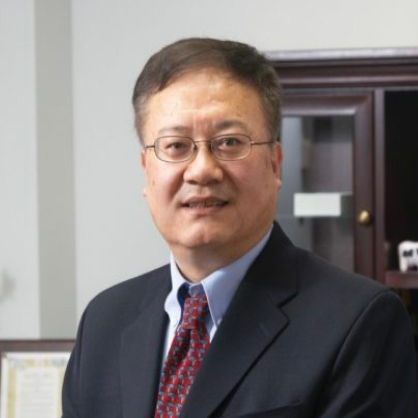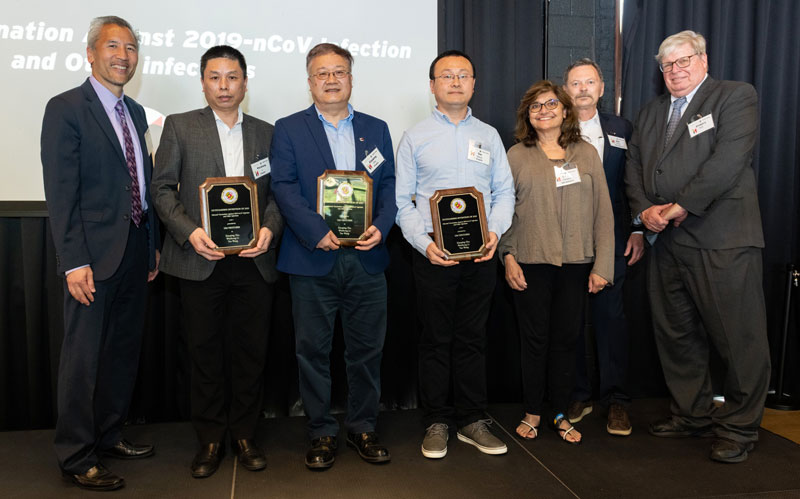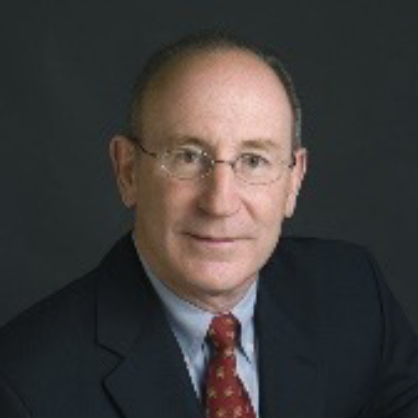About Us
Founders
Transmucosis was founded by Dr. Herbert Heyneker and Dr. Xiaoping Zhu, recognized veterans in biotechnology and immunology.

Dr. Herbert Heyneker
Dr. Herbert Heyneker received his PhD in molecular genetics from the University of Leiden, in the Netherlands. Soon thereafter, he conducted his post-doctoral research in the laboratory of Prof. Dr. Herbert Boyer at UCSF, and was later hired as the first scientist at Genentech. There, his lab focused on cloning and expression of genes coding for therapeutic proteins, including human insulin, human growth hormone, interferon, urokinase and t-PA. His lab carried out the co-expression of the light and heavy chain genes coding for an IgG antibody in E.coli (protected by the Cabilly I and II patents). In 1984, Heyneker joined Genencor as Vice President of research, where his work focused on applying recombinant DNA technology for the improvement and cost-effective manufacturing of industrial enzymes.
In the 90s, Heyneker co-founded three biotechnology companies: GlycoGen, which focused on enzymatic synthesis of complex carbohydrates; Protogene, which focused on parallel synthesis of oligonucleotides; and Eos Biotechnology, which focused on the identification and profiling of tumor-specific cell-surface markers. At Eos, Heyneker designed a highly parallel DNA synthesis instrument (US patent 6,264,891), which was used by a wholly-owned subsidiary of Eos to sell oligos over the web. This business was later sold to Invitrogen, and Eos was acquired by Protein Design Labs.
Heyneker served as a scientific advisor for London-based VC firm Abingworth from 2003-2010, and for Netherlands-based Thuja Capital from 2008-2021. He has served on the boards of US-based Genpharm, Guava Technologies, Crystal Bioscience, as well as several Netherlands-based companies including Crucell, Pharming, Pepscan, Prosensa, Profibrix, and DC-Prime. He is currently Chairman of the Board at Mimetas.
Heyneker is a recognized author on more than 50 peer-reviewed papers and an inventor on more than 30 US patents. In 2019, he was recognized by the Dutch Monarchy and awarded the rank of Officer in the Order of Orange-Nassau for his contributions to biotechnology.

Dr. Xiaoping Zhu
Dr. Xiaoping Zhu is a tenured Professor of Immunology and Virology at the University of Maryland, College Park, where he also serves as an Associate Dean and Department Chair. He teaches a graduate level course, Immunology of Infectious Diseases and is a Principal Investigator of the Laboratory of Mucosal Immunology.
Dr. Zhu’s research interests focus on understanding the innate and adaptive immunity and inflammation at mucosal surfaces, host-pathogen interactions, and developing the novel mucosal vaccine and immune therapeutic strategies against important infectious diseases and inflammation. His research is continuously funded by the National Institutes of Health (NIH), USDA, and other funding agencies.
Dr. Zhu is a member of the American Society for Immunologists, American Society for Mucosal Immunology, and American Society for Virology. He was trained in Veterinary Medicine, Pathology (M.S.), and Virology (Ph.D.) at the University of Wisconsin-Madison. He later did his postdoctoral in Immunology at Harvard Medical School and Brigham and Women’s Hospital. Before joining the University of Maryland, he held a junior faculty position at Harvard Medical School. Prior to that, Dr. Zhu was a lecturer teaching pathology in the College of Veterinary Medicine at China Agriculture University, in Beijing.

Dr Xiaoping Zhu, third from left, receives the “Outstanding Invention of the Year 2022 award” from the University of Maryland. See also recent article.
Board of Scientific Advisors

Dr. Richard Blumberg
Dr. Richard Blumberg received his B.S. degree in Biological Sciences from Carnegie-Mellon University, his M.D. degree from Jefferson Medical College of the Thomas Jefferson University and training in internal medicine (The New York Hospital, Cornell Medical Center), infectious diseases (Massachusetts General Hospital), gastroenterology (Brigham and Women’s Hospital) and immunology (Dana Farber Cancer Institute). He is currently Professor of Medicine, Harvard Medical School, Vice-Chair for Research in the Department of Medicine at Brigham and Women’s Hospital and past-Chief of Gastroenterology, Hepatology & Endoscopy at BWH. Dr. Blumberg is also co-Director of the Harvard Digestive Diseases Center and has directed a National Institutes of Health (NIH)-funded laboratory since 1989. Among his wide-ranging basic and applied discoveries in immunology and mucosal immunology, he was first to establish neonatal Fc receptor (FcRn) function in adult life and link FcRn to innate and adaptive immune activities. These insights led directly to new therapeutic strategies including creation of a novel class of long-acting therapeutic proteins, ‘monomeric’ FVIII-Fc and FIX-Fc fusion proteins, which are now globally approved for use in hemophilia A and B (as Scientific Founder, Syntonic Pharmaceuticals), and inhibitors of IgG-FcRn interactions for autoimmunity treatment (as Scientific Founder, Syntimmune Inc). He has a long-term program focused on understanding CD1 function in mucosal immunity and the role played in microbial sensing, as well as defining the now widely accepted principle that a “window of opportunity” exists in early life that defines immune development in mucosal tissues and later life risk for mucosal inflammations such as inflammatory bowel disease. Moreover, he discovered a new risk pathway for inflammatory bowel disease involving endoplasmic reticulum stress in the intestinal epithelium as a site for inflammation initiation and among the first to define CEACAM1 as a negative regulator of T cells propelling it into clinical focus as a potential target for cancer immunotherapy. As such, he is the recipient of a NIH Method to Extend Research in Time (M.E.R.I.T) Award, the William Beaumont Prize from the American Gastroenterological Association, a Scientific Achievement Award in Inflammatory Bowel Disease Basic Research from the Crohn’s and Colitis Foundation of America, a Lifetime Scientific Achievement Award from the Society for Mucosal Immunology, in which he served as President, and is an elected member of the National Academy of Medicine in the United States and the Norwegian Academy of Sciences. He has served on many NIH committees including membership on the Board of Scientific Counselors at the National Institute of Allergy and Infectious Diseases (NIAID).

Dr. David M. Mosser
Dr. David M. Mosser is a Professor of Cell Biology and Molecular Genetics at the University of Maryland and the Founding Director of Maryland Pathogen Research Institute. His research interests are primarily in the field of immunology and host defense, addressing how leukocytes can efficiently mediate host defense while maintaining the integrity of the host. He is most known for the discovery and characterization of macrophages with anti-inflammatory and growth-promoting activity, termed regulatory macrophages; these findings are important in the progression and outcome of infections, inflammation, and possibly neoplasia. He has published more than 150 peer-reviewed papers pertaining to leukocytes and their roles in host defense and homeostasis. Dr. Mosser received his Ph.D. from North Carolina State University and completed his post-doctoral training at Harvard Medical School. Dr. Mosser served on the NIH, NIAID Board of Scientific Counselors, the President of Society for Leukocyte Biology, and was Chair of ASM Division E (Immunology), and the Chair of the Maryland Stem Cell Research Commission. He has served on the editorial boards of several prestigious journals pertaining to infection and immunity.

Dr. Derry C. Roopenian
Dr. Derry C. Roopenian is an Emeritus Professor in the Jackson Laboratory. His research interests focus on understanding why the immune system causes autoimmune diseases and to devise methods to predict and treat them. Several mouse strains, including FcRn knockout and human FcRn transgenic mice, developed in his lab provide models for human diseases such as lupus, rheumatoid arthritis, and epidermolysis bullosa, and vaccine development. His pioneering research in understanding FcRn function lays a foundation in studying the mechanisms that affect the persistence of antibodies and antibody-based therapeutics. The information gained from his research is used to develop potential therapeutic approaches that can be translated to human treatments. Dr. Roopenian received his Ph.D. from University of Minnesota and his postdoctoral training as a Research Fellow at Harvard Medical School. He has published more than 210 peer-reviewed papers, books, book chapters and reviews pertaining to FcRn, autoimmune diseases, tissue transplantation and genetics. He has filed and been awarded several US patents. Dr. Roopenian was Merck Scholar in Immunology and was awarded the Distinguished Service Award by the American Association of Immunologists. He has chaired and participated in multiple NIH and international review and advisory panels, and has served on the editorial board and as a reviewer of several prestigious journals. He chaired and organized several international meetings and has served on the Scientific Advisory Board of several biotechnology companies.